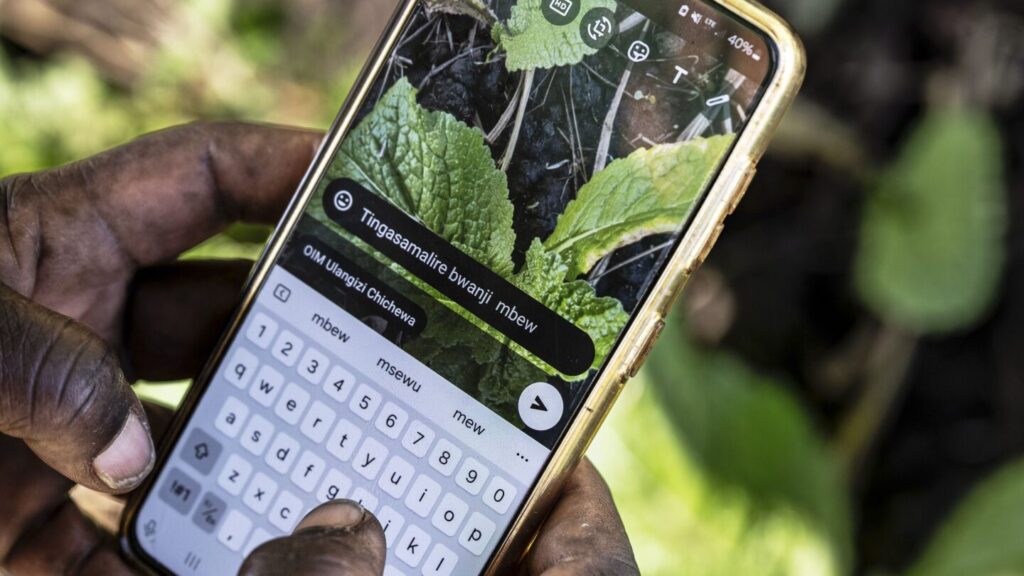In Mulanger, Malawi, Alex Maële’s farm was devastated by Cyclone Freddy, drastically reducing his corn yield from 850 kg to just 8 kg. To adapt and survive, he turned to an AI chatbot developed by Opportunity International, which provided him with agricultural advice. The chatbot recommended diversifying his crops by growing potatoes and cassava, leading to $800 in sales that helped cover his children’s education.
With over 80% of Malawi’s population relying on agriculture and facing a food crisis intensified by climate change, AI technology is increasingly being integrated into farming practices. Although private investment in agricultural tech has surged, challenges remain, including language diversity, low literacy rates, and inadequate digital infrastructure.
Malawi’s app, Ulangizi, aims to overcome these barriers by offering support in local languages and allowing farmers to communicate via audio or images for crop diagnosis. However, the success of AI tools relies on human support agents like Patrick Napanja, who face connectivity issues when providing assistance to farmers.
The Malawian government supports these AI initiatives, ensuring they align with official agricultural guidance. Nevertheless, building trust in AI remains critical, as inaccurate advice can jeopardize farmers’ livelihoods. Overall, while AI shows promise in enhancing agricultural productivity, significant barriers to access and reliability persist in rural Africa.
Source link


